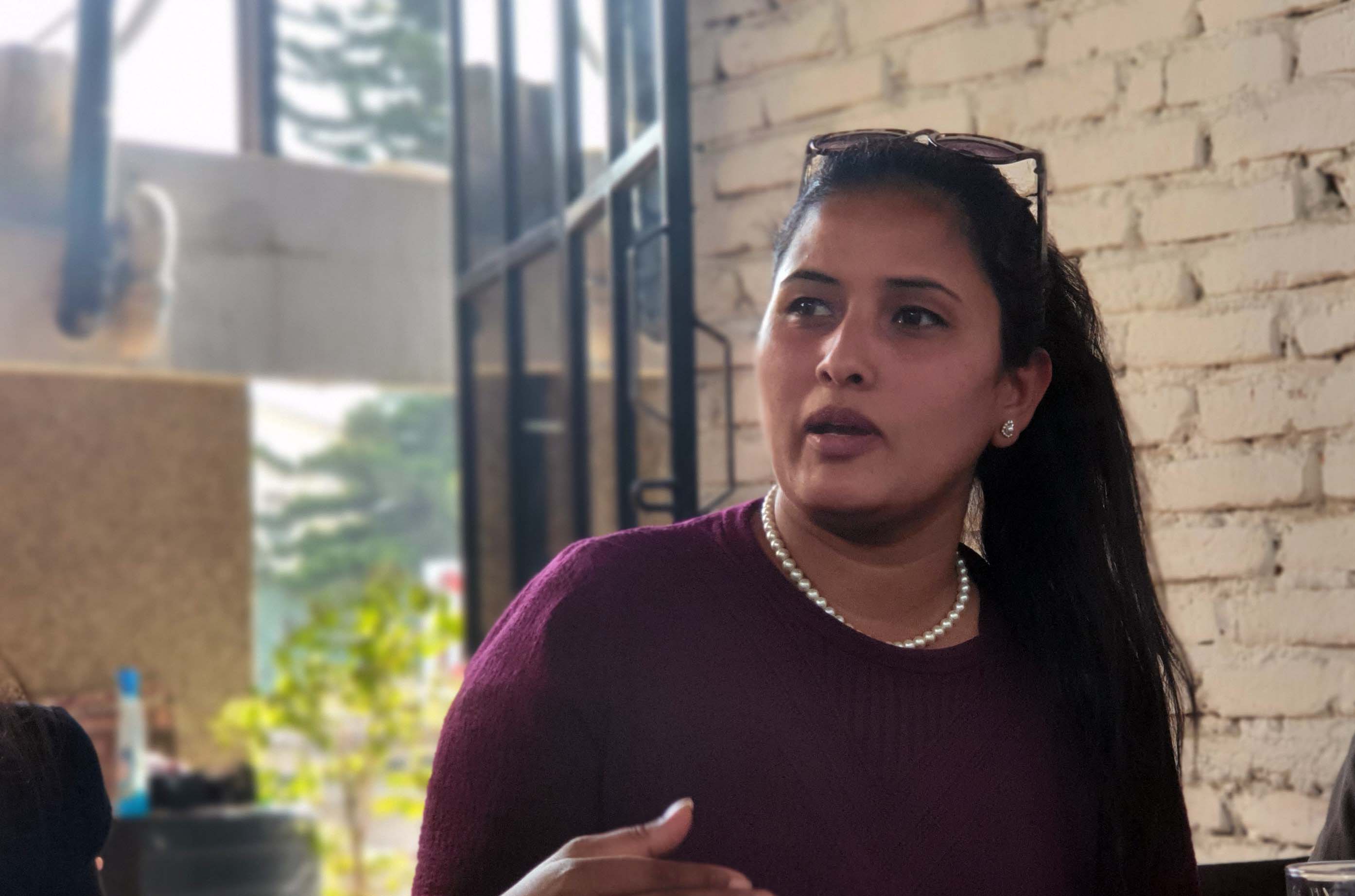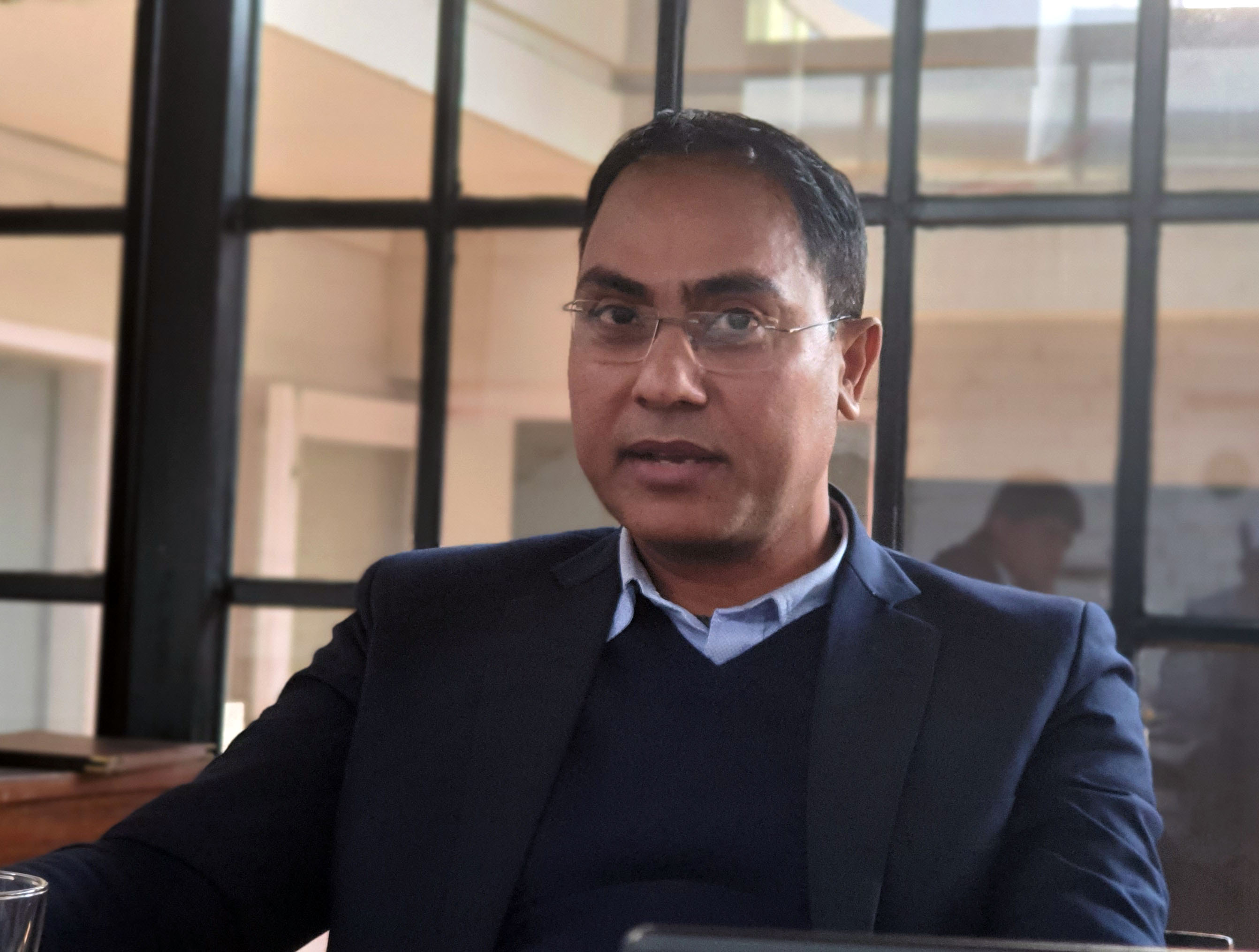Reflections of Journalists attending COP-27
December 28, 2022
The United Nations Climate Change Conference (COP-27) took place in Sharm el-Sheikh, Egypt from November 6 to 20, 2022. Leaders from over 100 countries attended the conference to speak out against climate change and promise to take action to reduce its effects. The United Nations Development Programme (UNDP) jointly with other UN agencies provided financial support to four Nepali journalists so they could travel to Egypt, get a deeper understanding of the issue, and report on the conference proceedings.
Upon return of the journalists, on December 14, the UNDP Nepal held a de-briefing meeting to hear the journalists' insights and reflections. The event was attended by journalists covering climate change and UNDP staff from Nepal. Here are abridged versions of their reflections.
Pragati Dhakal

Pragati Dhakal
A few years ago, people didn't think climate change and the environment were serious problems that should get a lot of attention in the media. But now, journalists and editors in Nepal’s media understand how important these issues are. Some journalists have started to write about these topics more, for different reasons.
Nepal made a promise to the United Nations Framework Convention on Climate Change in 2021 to use clean energy and increase forest cover by 2030, and achieve net-zero carbon emissions by 2045. They are working on ways to achieve these goals. China and India were reluctant to reduce their carbon emissions, but now they're thinking about it. However, since news reporters have to write about many topics on a daily basis, they can't just focus on climate change all the time.
At the COP-27 meeting of countries, one of Nepal’s agenda was to draw attention of the world to how mountains are disproportionately affected by climate change. How rich countries need to help poorer countries that are more affected. But Nepal could not bring up these issues prominently. Nepal should try harder to get global assistance for people who live in the Himalayas.
Studies show that most women, over 80% of them, are affected by climate change. But, this issue wasn't talked about enough at the recent meeting. For example, in Jumla, drying up of traditional water sources have caused women to have health problems. The media should try to bring up these problems in their reports so international assistance can be channeled towards addressing this and similar other problems.
Countries like Nepal should make sure that developed countries follow through on their promises to help fight climate change. For example, rich countries promised to set up a fund to help poorer countries adapt to the adverse effects of climate change, but this hasn't happened yet. If rich countries don't follow through, Nepal and other countries won't be able to do much to tackle the impacts of climate change. They should speak up together to make sure rich countries help more
Binu Subedi

Binu Subedi
I have been working as a journalist for over two decades. I have been mostly covering issues related to politics. Honestly speaking, I always considered the issues related to climate change as less important and something that are of interests only for the NGOs and donor agencies. Having understood the gravity of this issue during my learning and interaction at the COP-27 meeting in Egypt, I now believe that this issue deserves more attention. A recent report showed that more than 80 percent of those directly affected by the impacts of climate change are women. As a woman reporter and news coordinator for a national media outlet, I feel that gender related issues are completely ignored while writing reports on climate change.
In my role as a newsroom leader, I have seen firsthand the lack of human interest in climate change stories, which often get overlooked. It is crucial for journalists to bring a human touch to these stories, highlighting the struggles of communities and individuals affected by the impacts of climate change. While reporting on the melting of snow in the Himalayas and the Glacial Lake Outburst Floods or GLOFs is important, it is equally important to shed light on other climate-related issues such as erratic rainfall, which we saw recently in Saptari district, where farmers are badly affected by the floods. Simple, relatable stories will help bring more attention to the critical issue of climate change and its impact on people. We must relate all climate change related repots to the day-to-day lives of the people.
Bhisma Raj Onta

Bhisma Raj Onta
We tend to publish what we think people want to read. However, there is no proper research as to what issues people really want to read. The COP-27 has strongly raised the issue of loss and damage caused by climate-induced disasters. Nepal also stands to benefit from this arrangement. However, Nepali journalists have been unable to raise these issues effectively due to lack of adequate knowledge and understanding of the issues. There is an urgent need to train Nepali journalists on the issues of climate change to enable them to write better and more impactful stories. Journalists would be benefitted hugely if the UN helped translate COP related documents in Nepali language. People should be made aware of the role they can possibly play to minimize the effects of climate change.
Shree Ram Subedi:

Shree Ram Subedi
The real challenge for journalists covering climate change is that there is dearth data or scientifically proven evidence to write with certainty that a climatic event occurred as a result of climate change. As an instance, there was massive flood in Melamchi River which caused serious damage to the multi-billion rupees drinking water project. There is a question about its sustainability already. But there is no research to suggest the actual reasons behind the flood and whether that was caused by climate change. Another example is that, large number of people die in Cholistan desert in Pakistan when there was heavy rainfall. There is no adequate research to claim what is causing these disasters. Reporting on climate change issues deal with three main issues, namely mitigation, adaptation, loss and damage. For a long time, the climate science was regarded as unreal. However, such perception is gradually changing.
The UN Climate Change Conference brought together thousands of government officials, private sector parties, experts and journalists. There are several interest groups to inject their issues/concerns into the agenda. The latest studies have said that the global temperature is rising by more than 1.5 degree Celsius. Only 29 countries including Nepal have revised their target to reduce the global temperature.
The reason our government has not been able to effectively raise its agenda is that there is no government preparation in advance to designate responsibility to certain officials to engage in climate change negotiations. The issues of climate change involve not just one particular department of the ministry. As an instance, one NDC involves sixteen departments form different ministries. It is not something that one government secretary or ministry of forest and soil conservation alone can do. The government needs to form a dedicated and permanent team to deal with climate change issues. Government officials who participate in the climate change negotiations are not sure till the end if they would be designated to represent Nepal at the global climate change negotiations. There are different mechanisms formed withing the Nepal government but all these need to be further strengthened and activated.
We also have civil society members, who are part of the negotiation team. They are doing great job. This time, we could see Pakistan was at the center of attraction. Even the UN General Secretary visited the Pakistan pavilion when Pakistan Prime Minister addressed the global audience from the pavilion. This was because they could effectively raise the issues that they incurred a loss worth over $40 billion in the recent floods. Effective political leadership is required to strongly raise the issues of climate change. This is something we lack in Nepal. We now need a new generation of leadership to drive climate action in the country. How many people participated the conference is not important. What matters is whether we were able to influence the policy-making process at the global forum.
It is important for us to think as to how we can be self-reliant on financing adaptation. Our communities have long been self-reliant. These indigenous practices need to be promoted further. One of the important challenges that we face today are Glacial Lake Outbursts Flood (GLOF). This is a transboundary issue and is similar to the problem of pollution. Air pollution in New Delhi impacts us in Kathmandu.
We need some Climate Ambassadors. We have Sherpas who have over three decades of experience. They have seen the changes themselves and can speak English. We can use them as our climate ambassadors as they are heard by global media. including New York Times and CNN.
The Ministry of Foreign Affairs made its debut participation in the COP, previously the Ministry of Forest and Soil Conservation solely handled climate change negotiations. Nepal, however, did not have its own pavilion in the COP-27. I think setting up our own pavilion, for example “the Everest pavilion” to share Nepal’s experience on climate change could help Nepal raise its issues at the international arena.

Deepak KC, Programme Analyst- Climate Change and Resilience
Deepak KC, UNDP:
Nepal aims to become carbon neutral by 2045 as part of the global goal to limit warming to 1.5°C. To achieve this, other countries also need to revise their carbon neutrality targets and commitments, such as China (2070) and India (2060). To effectively lobby for revised Nationally Determined Contributions (NDCs), Nepal must find countries that share its concerns, especially regarding the impacts of climate change on mountains and Small Island Developing States (SID).
The Conference of the Parties (COP) is held annually to address climate change, with negotiations being a crucial component. Nepal should prepare a team with multi-sectoral expertise to advance its national agenda in COP negotiations and coordinate with other countries.
The pavilions at COP provide platforms for learning, networking, and sharing issues and ideas. Bilateral meetings offer opportunities to discuss country-specific agendas and access funds.
Nepal should prepare three core groups with specific mandates to oversee pavilion, multilateral, and bilateral negotiations. The UNFCCC focal point in the government of Nepal should begin preparation, engaging relevant government institutions, development partners, academia, civil society, private sector, and independent experts.

 Locations
Locations